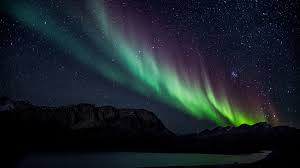记忆方法
为了记忆单词“aurora”,可以将它分解为“au-ora”。想象“au”像是太阳升起的早晨,“ora”是“hour”的音变,意味着“一小时”,于是“aurora”可以想象为太阳在早晨升起时照亮天空,呈现出极光(aurora borealis)的壮丽景象。这种联想可以帮助你记忆这个单词的含义,即“极光”。
以上内容由AI生成, 仅供参考和借鉴
英语词源
- aurora (n.)
- late 14c., from Latin Aurora, the Roman goddess of dawn, from PIE *ausus- "dawn," also the name of the Indo-European goddess of the dawn, from root *aus- (1) "to shine," especially of the dawn (cognates: Greek eos "dawn," auein "to dry, kindle;" Sanskrit usah, Lithuanian ausra "dawn;" Latin auster "south wind," usum "to burn;" Old English east "east").
权威例句
- 1. Aurora felt the opium haze enfold her.
- 奥萝拉感觉自己被笼罩在鸦片烟霾中。
- 2. And wooed on Coosa's side Aurora's beam.
- 我见过库萨山巅晨曦的分娩.
- 3. The aurora is one of nature's most awesome spectacles.
- 极光是自然界最可畏的奇观之一.
- 4. In the northeast a silvergreen serpentine aurora pulsed and quivered gently.
- 银绿色,长蛇似的极光,在东北方很文静地翕张、颤动.
- 5. Over the polar regions we should see aurora.
- 在极地高空,我们会看到极光.
